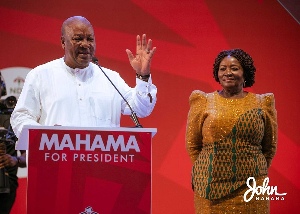The overwhelming success of government’s debut local dollar bond could serve as a precedent for bigger and longer term issuances, Kofi Awuku, a member of the book building team has said.
The results of the bond issued last week beat government’s expectations by almost twice the US$50 million the state planned to raised; proving the potential of the local fixed income money market to help local investors avoid the foreign exchange risk they face when they put their money in cedi-based assets.
“This being the maiden edition, possibly there are investors who stood aloof because they are not too sure about the outcome. Now that it has worked out successfully this means demand can be created,” he told the B&FT in a telephone interview.
With total bids received standing at US$99.6million, government accepted a total of US$94million for two years in its first local dollar bond at a coupon rate of 6percent, thus rejecting some US$6.6million, which came in at a coupon rate higher than what government wanted to pay.
The bond targeted resident in Ghana and non-resident Ghanaian investors, who have US dollar balances in their Foreign Exchange Accounts (FEA) and Foreign Currency Accounts (FCA), and is set to be traded on the Ghana Fixed Income Market (GFIM) platform.
The Finance Ministry, a month ago, said it was hoping to raise US$50million, adding that the new debt issue was aimed at exploring alternatives to meeting government’s financing needs, and to deepen the capital market.
With this coupon rate, the cost of the bond is significantly lower compared to government’s last US$750million Eurobond which was issued last month at a coupon rate of 9.25percent.
“As things stand, dollar balances sitting with banks earn zero interest so if there is a bond that will pay 6percent then we could see demand on the investor side,” Mr. Awuku said.
Conceding that it is early days yet, he said: “just as people did not anticipate government raising almost a US$100million locally and also this bond didn’t even have much publicity because the idea was sold to only private wealth clients, I can’t tell how the demand will look like but demand is a high possibility,” Mr. Awuku said.
Touching further on the success of this bond and what it means going forward, he guessed that if government has to go out to the Eurobond or external market to raise dollars at 9.25percent and now to raise this amount locally at a lower rate then it makes a lot of sense to do it locally.
“What it could possibly mean is that government may likely look to do a few more local issues and reduce external borrowing. Government also has a moral obligation to find loans it pays less on rather than to go and borrow expensively.”
An economist, who pleaded anonymity because he’s not been authorised to talk to the media, noted that the introduction and success of this bond is a further step forward for the local fixed income money market and sets a new benchmark for the market, based on which companies could also raise dollar funds from the local market in future.
“The success of it shows the need for this kind of product, which helps dollar investors avert much of the foreign exchange risk they face when they put their money in cedi-based assets.”
The economist added that for the government, whose foreign exchange needs for debt service and other payments are increasing, this seems like a good alternative funding source that can be explored and developed.
Asked what this bond means to the cedi, Mr. Awuku does not see a negative impact of this bond because “government is targeting existing dollar account holders.”
He was also of the view that the tenor of the bond is “just perfect for both the government and investors” because this is a debut issue and government wouldn’t want to go too long and investors wouldn’t want to commit so much in untested waters.
“One of the roles we played as book-runners was to engage with clients. Investors feared that since this is the very first time and they were leaning towards a relatively shorter tenor and use this as a test case. I suspect that people invested less than they would have done if they were more confident.”
Business News of Tuesday, 18 October 2016
Source: B&FT













